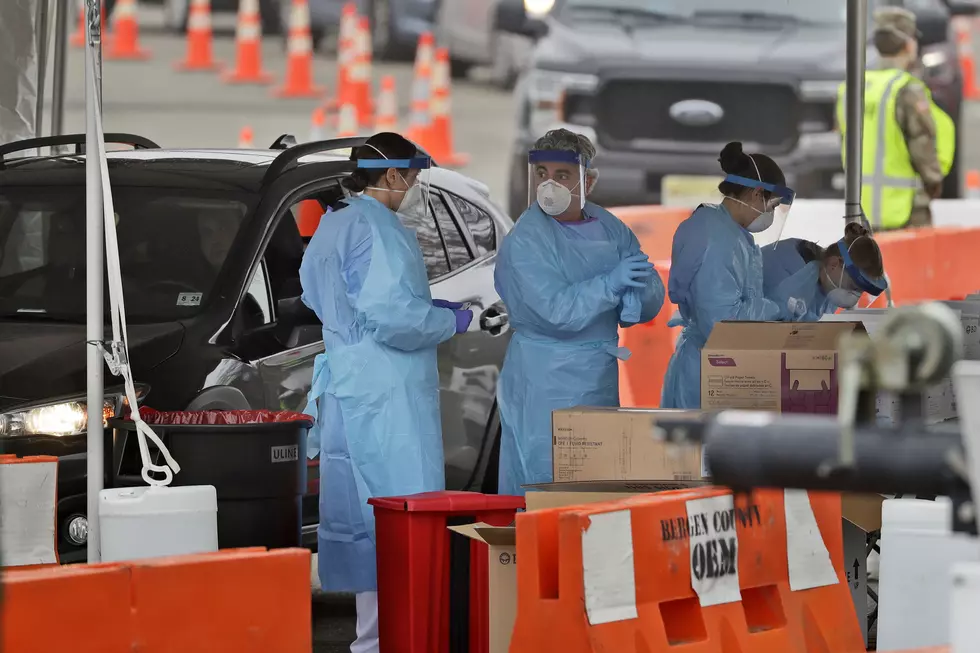
To reopen, NJ getting more testing and small army of contact tracers
In preparation to begin reopening the state economy, Gov. Phil Murphy on Tuesday unveiled a plan to significantly beef up COVID-19 testing and contact tracing.
Murphy said the state will be able to test at least 20,000 state residents a day by the end of May.
“More testing means more people will know their health status and that means more peace of mind," he said. "And more testing creates more data, and more data allow us to take more steps forward."
Contact tracing is the process of identifying people who may have come in contact with someone who has tested positive for the coronavirus and might have been infected.
“We’re going to have to use contact tracing unlike it’s ever been deployed before, and to do that we’re going to need to build our Community Contact Tracing Corps," Murphy said.
Murphy said expanded testing and contact tracing is necessary to give everybody “the confidence that we’ve got the infrastructure in place so that as we begin to reopen the state, they know that we’re on it, we can spot a community spread or a flare-up with very short notice.”
Murphy said expanded testing and contact tracing will cost hundreds of millions of dollars but both are indispensable for reopening the economy.
Until now, contact tracing has been carried out mostly by hundreds of local health departments. But this plan will require more than a thousand additional tracers.
To double the amount of contact tracers, the state Health Department is reaching out to colleges and universities to get public health, social work and related students.
New Jersey residents can also sign up for a $25-an-hour job as a contact tracer at covid19.nj.gov/tracer.
State Health Commissioner Judith Persichilli said as many as 5,000 additional contact tracers may be needed in the months to come.
“The ability to scale our contact tracing capacity is absolutely crucial,” she said. “Having a robust Community Contact Tracing Corps will increase our ability to quickly identify new cases and take immediate public health measures to interrupt the transmission of the virus.”
She noted contact tracers should reflect the neighborhoods where they live.
“Our goal is to recruit culturally competent and multi-lingual individuals from communities across the state,” she said.
The contact tracing would mostly be done over the phone or online — not in person.
New Jersey State Epidemiologist Tina Tan said if someone tests positive for COVID-19, contact tracers will immediately focus on the individuals who came within 6 feet with that infected individual for at least 10 minutes.
If someone who tests positive for the virus had gone to a supermarket, there would not be any attempt to contact other shoppers in the store unless the infected person had stopped to have a conversation with someone for 10 minutes, Tan said.
Tan also stressed contact tracing is done in a confidential manner. She said the privacy of the people who are contacted is always respected and the identity of the patient is not revealed.
A new online information platform system will be used by local, county and state health officials to track COVID-19 flare ups.
About 6,000 COVID-19 tests a day were being done in March, doubling in April and it will almost double by the end of May. Murphy said there should be at least 25,000 a day by the end of June.
CVS, meanwhile, plans to introduce swab-and-send testing at 50 of its stores by the end of the month to add to the 135 public and private testing sites in the state.
Murphy said new testing facilities in urban areas will also be opened soon, there will be mobile testing vehicles operating and testing at churches and synagogues and other houses of worship.
Rutgers University will be receiving $6 million to boost their saliva test production capabilities dramatically over the next eight weeks.
Persichilli said testing will be ramped up first for those most at risk, those who are elderly and have medical issues, then frontline workers and first responders followed by the general population.
She noted as the weather is getting warmer, growing season is underway and “testing of seasonal workers in South Jersey has begun."
Out of 129 seasonal farm workers who have been tested, 57 have returned as positive. Persichilli said plans have been made to isolate those workers and expand testing of other seasonal workers.

READ MORE: Inspiring Stories From the Coronavirus Pandemic
More From 105.7 The Hawk










